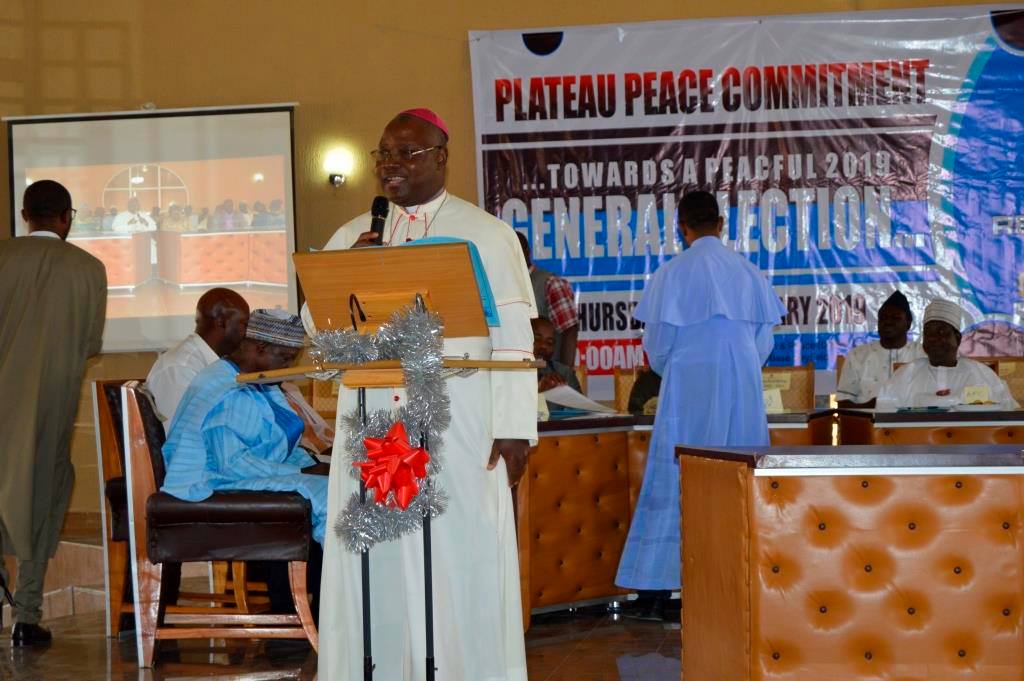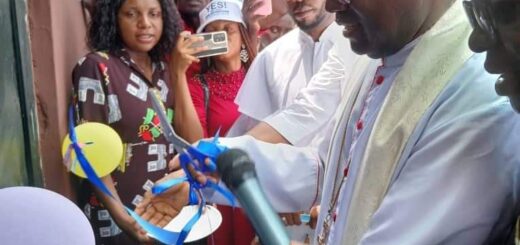Called to Generosity of Heart
by ARCH BISHOP · July 2, 2023
13th Sunday, Year A, Our Lady Queen of Nigeria Pro-Cathedral, 2nd July, 2023, Homily by Archbishop I. A. Kaigama
Readings: 2 Kings 4:8-11, 14-16; Romans 6:3-4, 8-11; Matthew 10:37-42
Called to Generosity of Heart
I returned from Idah, Kogi State, on Friday from the provincial meeting of Bishops of the Ecclesiastical Province of Abuja. We were very well received by the Attah Igala (the first-class Traditional Ruler of Igala land), and the people of Idah Diocese led by Bishop Anthony Adaji, MSP. Asked by a journalist to assess the hosting, I said, “I give Idah diocese a distinction in hospitality and generosity.”
The Church today urges us to show generosity to all those in need, irrespective of tribe, religion, or political affiliation; to make a positive difference in their lives by engaging in charitable works, realizing that whatever we do for the love of God will never be forgotten. God sees and knows everything even the humblest act of generosity. When we are generous without seeking personal gains and not letting the “right hand know what the left hand is giving,” God will in turn reward and remember us in our time of need and distress.
The first reading tells the story of the warm hospitality given to the prophet Elisha by a Shunammite woman. She invited the stranger home and to a meal; she and her husband provided a furnished room for the prophet. The prophet reciprocated the kind gesture by this promise to a barren old woman: “This time next year, you will hold a son in your arms” (2 Kgs. 4:16). Worthy of note is that the Shunammite woman thought of no reward when she and her husband accommodated the prophet. According to 1 Peter 4:8, generosity opens doors and cancels a multitude of sins. St. Paul speaks of giving with joy in 2 Corinthians 9:7: “God loves a cheerful giver.”
The best gift we can offer one another is the gift of ourselves. Be generous according to your ability or material resources. Life it is said is strange. You come with nothing and fight for everything and in the end, you leave everything and go with nothing. Writing to the Romans, St. Paul reminds Christians about dying to sin and to self, while looking forward to the resurrection (cf. Rm. 6:5).
The Gospel reading today even though addressed to His Apostles, Jesus seems to offer a prescription for our leaders in Nigeria. Jesus told His disciples that they must be prepared to undergo great sacrifices even to the point of offering their lives for His sake. The Apostles had to suffer imprisonment, flogging, hardships, and martyrdom for the truth. If our leaders truly want to overcome poverty, suffering and injustice which is why violence and criminality seem to be on the increase, they must choose the interests of Nigerians over personal selfish interests and ambitions. When people are treated well and they feel a sense of belonging, it brings about contentment, and we do not have to bicker about which religious group or tribe has more or has less.
In our country many people are ready to give their lives or even take other people’s lives in the pursuit of political ambition or economic benefits, instead of the pursuit of unity, peace, and inter-religious harmony. Some give to others because they want to receive favours after or just so that the public will perceive them as generous persons. Such kind of generosity has no lasting reward.
The first reward for generous people is inner satisfaction. The second reward is the reward that comes from God, which is not limited to time and space. Hebrews 13:2 reminds us never to neglect to show hospitality to strangers, for thereby, some have entertained angels unawares. In our society where the frequent effects of crises and flooding keeps rendering people homeless and hungry, we have a duty as Christians to come to their aid, to help alleviate their suffering.
Jesus tells us that whoever gives a cup of water to a thirsty person will “most certainly not lose his reward.” In Matthew 14:13-21, we read of the miracle of the feeding of five thousand where a boy gave out five barley loaves of bread and two fish and twelve baskets full of broken pieces were gathered in return.
The Eid-El-Kabir celebrated some days ago by Muslims recalls how Prophet Ibrahim (Abraham), was ready to sacrifice his son in total trust and submission to Allah (God) before there came a divine intervention. The essence of this story is submission, obedience, and love. Sadly, these virtues are in short supply in our country today. Eid-El-Kabir is therefore a reminder to us to appreciate the gift of life and to imbibe the virtues of tolerance, compassion, understanding and good neighbourliness.
We pray that all Nigerians will learn to make sacrifices for the growth and development of our country; from the Presidency, National Assembly, Judiciary, to the State and Local Government, etc, especially following the fuel subsidy removal which has created real tough living conditions, and the Catholic Church which even though has no government grants at all is witnessing an increasing number of people seeking help for basic survival. The panacea to this is that all those in charge of our patrimony must be selfless and must give generously to people what is their legitimate right.




